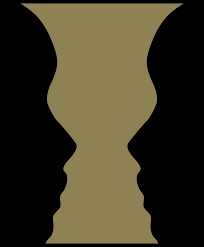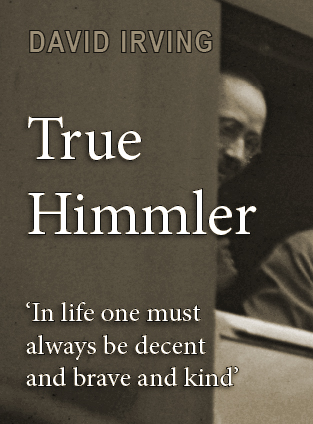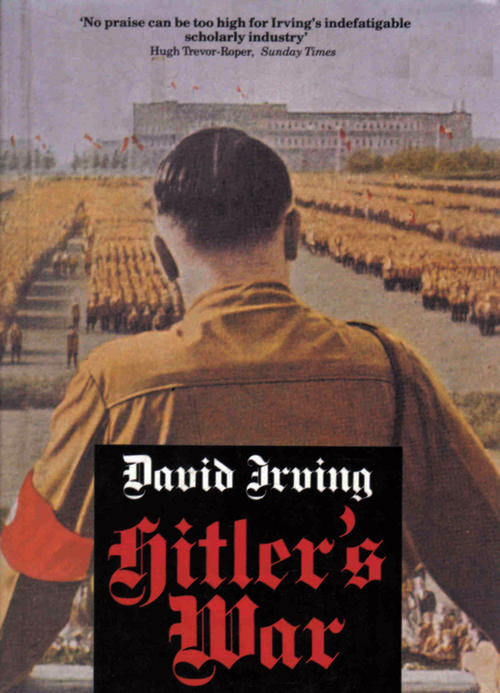A paradigm shift
After posting ‘Christmas Eve’ and trying to capture some vitamin D by sunning myself on the roof of the house, I came up with an idea that reflects the point of view of this site.
Yesterday I read David Irving’s article on The Unz Review where he talks about the sabotage that Jewry has inflicted on him over the years due to his biographies of the most prominent personalities of the Third Reich. I think what Irving says is true, and I have no objection to what he wrote. But what most struck me is that every time Jewish associations complained in various countries on both sides of the Atlantic, it was the Gentile authorities who took the repressive measures against Irving.
As Thomas Kuhn well saw, the same information can be processed in a completely different way between two subjects. So different that, depending on how we process the info, the paradigm shifts. In science, the classic paradigm shift would be from the geocentric to the heliocentric system. Although 17th century astronomers had exactly the same information, it depended on how they interpreted the data.
I have already posted the following caricature on this site but it is necessary to repost it, as it reflects the paradigm shift from the JQ, which currently reigns in white nationalism, to the CQ—Christian question—that I propose. The caricature is interpreted by some white nationalists as archetypal Jewish subversion, as if to imply that the kikes hypnotised us through religion.
Regardless of whether or not that was the intention of the caricaturist, I see the same information differently. The kike didn’t hypnotise us. There is white agency. Just look at the faces of these white idiots. They simply love what the kike tells them. It’s obvious to me that for two millennia white Christians have been willingly indulging in evil by following the gospel. And the same can be said for secular white nationalists who continue to subscribe the same ethical code that we see in the caricature.
The caricature shows a malicious Jew selling us Christian ethics. The orthodox interpretation of our decline, which we see every day on The Occidental Observer, blames the Jew. But with the same info that MacDonald sees I see whites as the real culprits. Who dares to believe such bullshit, the white family in the above caricature? The same info can be interpreted depending on our internal will. While white nationalists see a couple of kike silhouettes, I see in ochre colour the bitter cup that Christianity made us drink since Constantine.
 The first image above can also be used as an illustration of a paradigm shift. Who to blame: the Jew who wants to sell us the teachings of Jesus or the white folk who candidly accepts them? Who is worse: the white imbecile or the foreign subversive?
The first image above can also be used as an illustration of a paradigm shift. Who to blame: the Jew who wants to sell us the teachings of Jesus or the white folk who candidly accepts them? Who is worse: the white imbecile or the foreign subversive?
In my life I have hardly dealt with Jews. Two of my classmates in elementary school were Jewish, and I only met a single Jew in high school (about whom I wrote a critical essay in the updated edition of The Grail). From my twenties to middle age I only superficially treated a couple of Jewesses: colleagues of my family in the cultural milieu of the country where I live. I never got on closely with any of them. But about the Christians or secular Gentiles I could tell hundreds of anecdotes: they are exactly like the white imbeciles of the first image.
The idea that occurred to me while sunbathing comes from a very specific example: what happened to me on the Gates of Vienna blogsite in 2009 and 2010.
Gates of Vienna is the perfect microcosm of what happens across the West; for instance, what happened to Irving with the Gentiles who obeyed the whining Jewry. As can be seen from my earliest posts when The West’s Darkest Hour was not launched by WordPress platform but Blogspot, when a Jew complained to Ned May (the Gentile admin of Gates of Vienna) because of what some Jew-wise commenters said, May immediately obeyed the Jew to censor the commenters.
For the evolution of my thought this was a microcosm of what happens on a large scale throughout the West! It took me about a year to give up Gates of Vienna and to grasp that Jewish subversion is, ultimately, white suicide. Thanks Ned!
The one who had power in the Gates of Vienna forum was the Christian Ned May, not the complaining Jew. May could let these gentiles comment about the JQ but he didn’t do it. The Jew complained just as the other Jews have been complaining in various countries, as David Irving recounts, until whites obey. And just as happened to me in the obscure site Gates of Vienna, worldwide gentile authorities banned Irving (and many others) from various countries simply for obeying the complaining Jew.
That sort of thing happens when you are imbecile enough to accept the code of ethics of the first image above.
Sometime after I stopped commenting on Gates of Vienna I received an email from an intelligent woman who told me that the dynamics continued the same in that forum: the Jew complained and May obeyed. Anyone who hasn’t had an exasperating experience like the one I had at that forum won’t understand what a paradigm shift means, from Jewish silhouettes to the poisonous chalice that whites like to drink. Exactly the same information—let’s say the Irving article I read—makes white nationalists and I see things as completely different objects.







